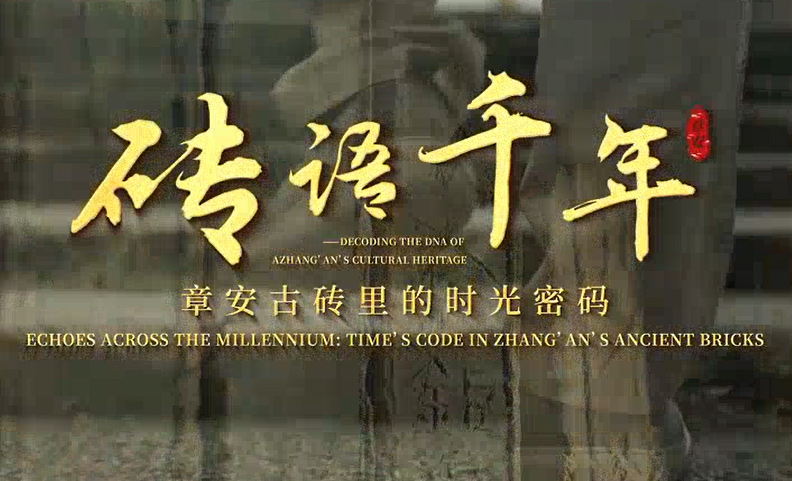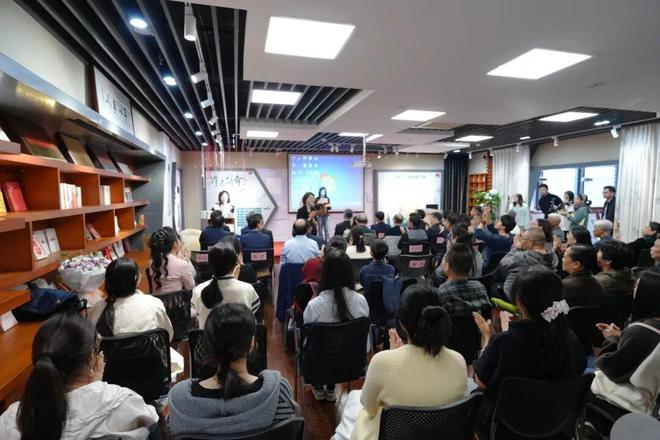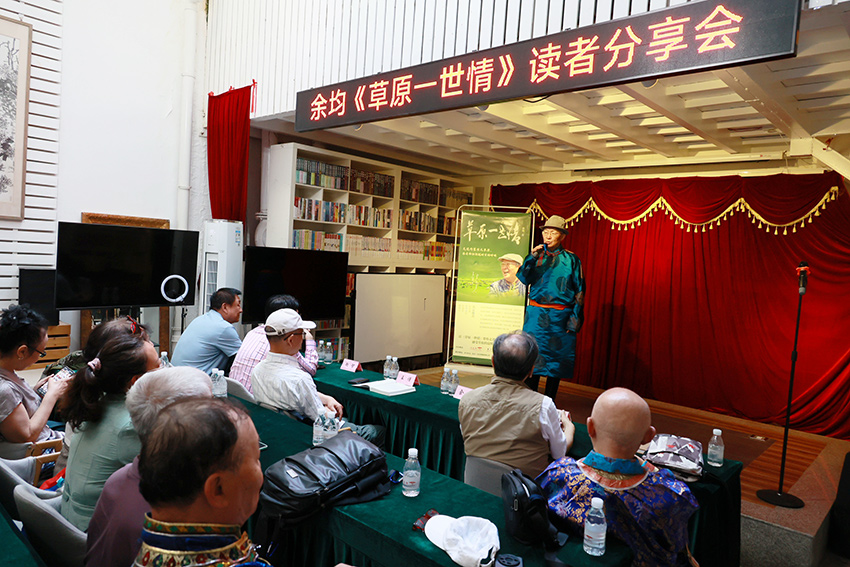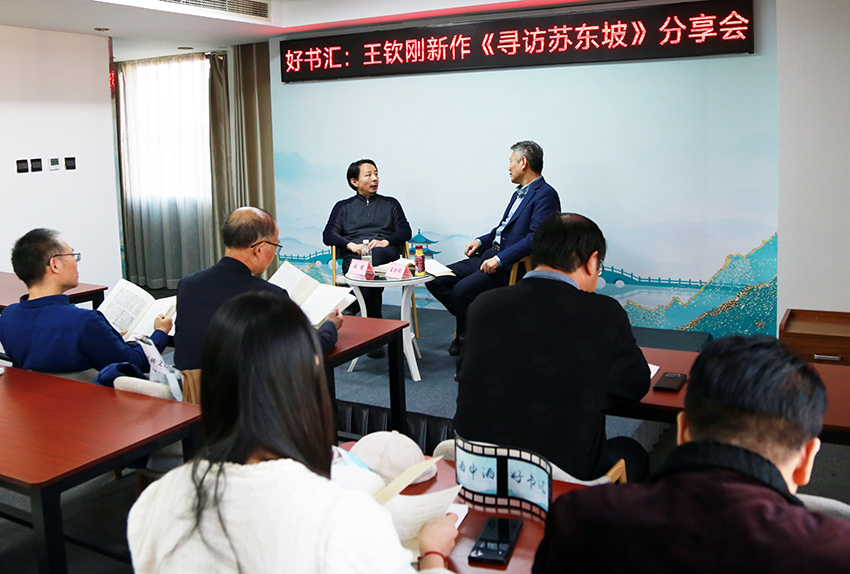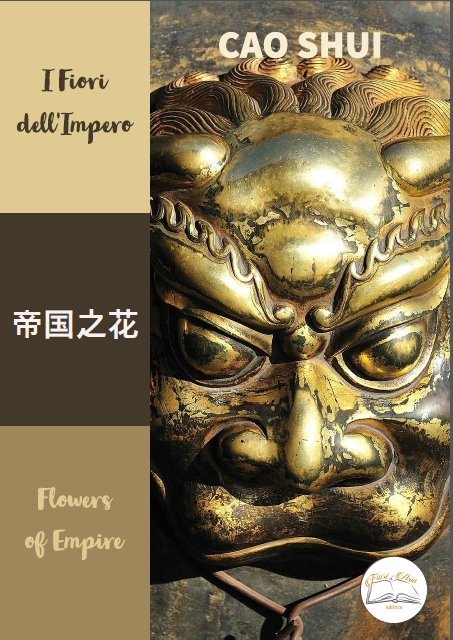
从黑暗到光明
——曹谁的《帝国之花》是年轻一代渴望领导新世界的信号
[印度]拉蒂·塞克森纳 文
[中国]曹谁 译
在印度《奥义书》中有一的赞美诗说:引导我们从黑暗走向光明,引导我们从无知走向知识。这就是一个诗人所做的,当他从给定的词汇中创造词汇时,在东方哲学中,词语的权力被尊为创作者。
我们意识到,智慧地使用词汇会带来一个更美好的世界。当我读到卢茜拉·特拉帕佐对曹谁的采访时,我并不惊讶地发现这位诗人接受了他童年时害怕阴影的事实,对阴影或黑暗的恐惧意味着追求更美好的世界。
大多数人总是被浸透在悲伤和痛苦中的话语所吸引,这就是为什么这样的诗很容易引人入胜。
要写出一首能带来普遍性和幸福感的诗并不容易,要做到这一点,诗人必须知识渊博,思想开放。
阅读曹谁的诗,我很高兴看到他的表情和情感的普遍性。作为一名当代诗人,曹谁的视野不同于他所处的土地上的其他诗人,并将他与另一个世界联系起来。
曹谁写的《帝国之花》一书最大的吸引力是对悲伤的抵抗,这有时是由人们创造的。这个世界是一个舞台,他想站在中心,面对快乐和悲伤。
你是世界中一个最普通的人
所有的人仍不会放过你
他们为你歌舞
一齐助你悲伤
直到你绝望
直到你离开这个世界
他们就会一哄而散
去为下一个人哀歌
(《大悲舞》)
曹谁不是在改写历史,而是从不同的文明中提取符号来展示普遍的真理,这应该由哲学家来教导。所有伟大的文明都是在恐惧和力量中诞生的。但是他们在哪里?他们能够通过民间流传的故事和对人类的热爱而保持完整。他在诗中提出了这个问题。铁狮子为墓主人镇守坟墓
雅利安人的马匹向西冲出
羌人族系的孤舟向东划动
墓中的宝物都静静沉睡
蒙古帝国的铁蹄随着日出布满亚细亚
大英帝国的帆船随着日落使出欧罗巴
墓中的宝物都安然无恙
(《铁狮子坟》)
可悲的是,历史只记得残酷,难道这不是强调黑暗而不是光明的一种方式吗?难道我们不应该赋予杀戮更多的意义而不是赋予生命吗?我引用他自己的话,这解释得更好。
崇祯帝在明史中名垂千古
美狄亚在悲剧中传播广泛
今天这个阿姑山村的村姑杨改兰
用了崇祯帝的斧头和美狄亚的毒药
杀死崇祯帝和美狄亚加起来的孩子
崇祯帝和美狄亚有崇高的追求
你却只是想让孩子们脱离痛苦
(《崇祯帝和美狄亚架着杨改兰自绝于盛世》)
曹谁不仅在他的诗歌中带来了历史,而且还以如此优美的方式使用了民间故事,使其与当代世界相关。他要唱爱情的歌,那只能面对残酷。
在这茫茫的人世
我们相爱多么不易
我们在生和死的边际奔跑
我们仰面对着星空说
任百世千劫的大风吹过
生在一起,死在一起
(《大风歌》)
幸福就像一朵小花,它一步也走不动,但随着它的碎片飘向许多地方,这些线条在这场流行病中有多贴切。
紫红色的颜色是高贵
甜滋滋的味道是优雅
这是我们过家家的饮品
这是我们走亲戚的酒水
他可以在我们练武功后助兴
他可以在我们打胜仗后庆功
(《壶壶喝酒》)
我希望读者仔细阅读他的诗,我用他的一些诗句总结我的评论,这些诗句传达了所有宗教、所有语言和所有领导人只传达一个信息,那就是阅读诗歌。诗歌是文字的力量,它可以治愈疾病,也可以治疗疾病。
华夏人用华夏语说黄帝
希腊人用希腊语说宙斯
印度人用印度语说因陀罗
犹太人用犹太语说耶和华
埃及人用埃及语说太阳神拉
波斯人用波斯语说马尔杜克
他们争论不休
我们听不懂他们的语言
却知道他们在说什么
我们诵读一首通天塔之歌
舌战全世界的人
他们全都被震撼
(《我们的一个梦胜过十万种人生》)
对于渴望领导新世界的年轻一代来说,这是一个非常有力的信号。
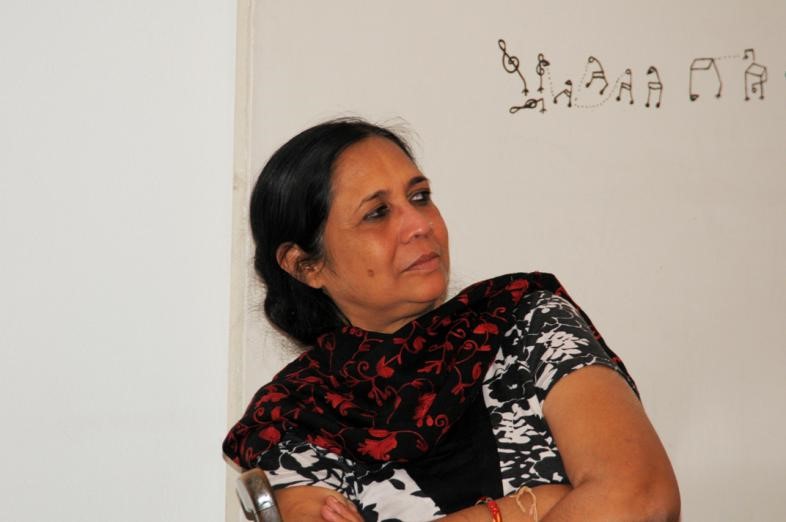
拉蒂·萨克森纳(Rati Saxena),印度著名诗人、翻译家、哲学博士,她研究文化、历史和古代文学以及哲学。她在《阿闼婆吠陀》学研究上,取得哲学硕士和哲学博士学位,她在印度古代文学的研究上做了更多的工作。在这个研究方向上,她在英迪拉·甘地联谊会下的作品是《心灵的种子:一种通向阿塔瓦吠陀的新方法》,发表了许多期刊的文章。她有六本印地语诗集和四本英语诗集(翻译或改编)。她翻译了15本书,主要是从马拉雅拉姆语到印地语,以及5本诗集(国际诗人),从英语到印地语。作为一个天生的旅行者,她有两本游记。她还写了一本回忆录《一切都是过去时》,讲述了阿亚帕·帕尼克尔的诗歌之旅,以及一本关于巴拉曼雅玛诗歌的评论集。她关于诗歌治疗的书出版于哈瓦卡尔出版社,这是一个打开的拳头,讲述从遥远的过去到现在到未来的诗歌治疗。她的诗集被国际诗人翻译成许多国际语言,如意大利语、爱尔兰语、越南语、西班牙语、爱沙尼亚语、塞尔维亚语、英语、中文和土耳其语。她被邀请参加了30多个国际诗歌节,在德国和中国有过三次居留权。她是德国多语种文学杂志WürZarT编委,她是国际科学委员会squilibri的成员,她的诗入选日本Jaxa宇宙航空研究开发机构太空任务。2004年她获得英迪拉·甘地国家艺术中心奖学金,2000年获得萨希提亚阿卡德米翻译奖,2001年获得特拉凡科国家银行诗歌奖,2016年获得纳吉·纳曼文学奖(国际)全集奖,2018年获得中国诗歌DJS(艾米莉·迪金森)翻译奖、拉贾斯坦邦帕特里卡奖年度最佳诗人。
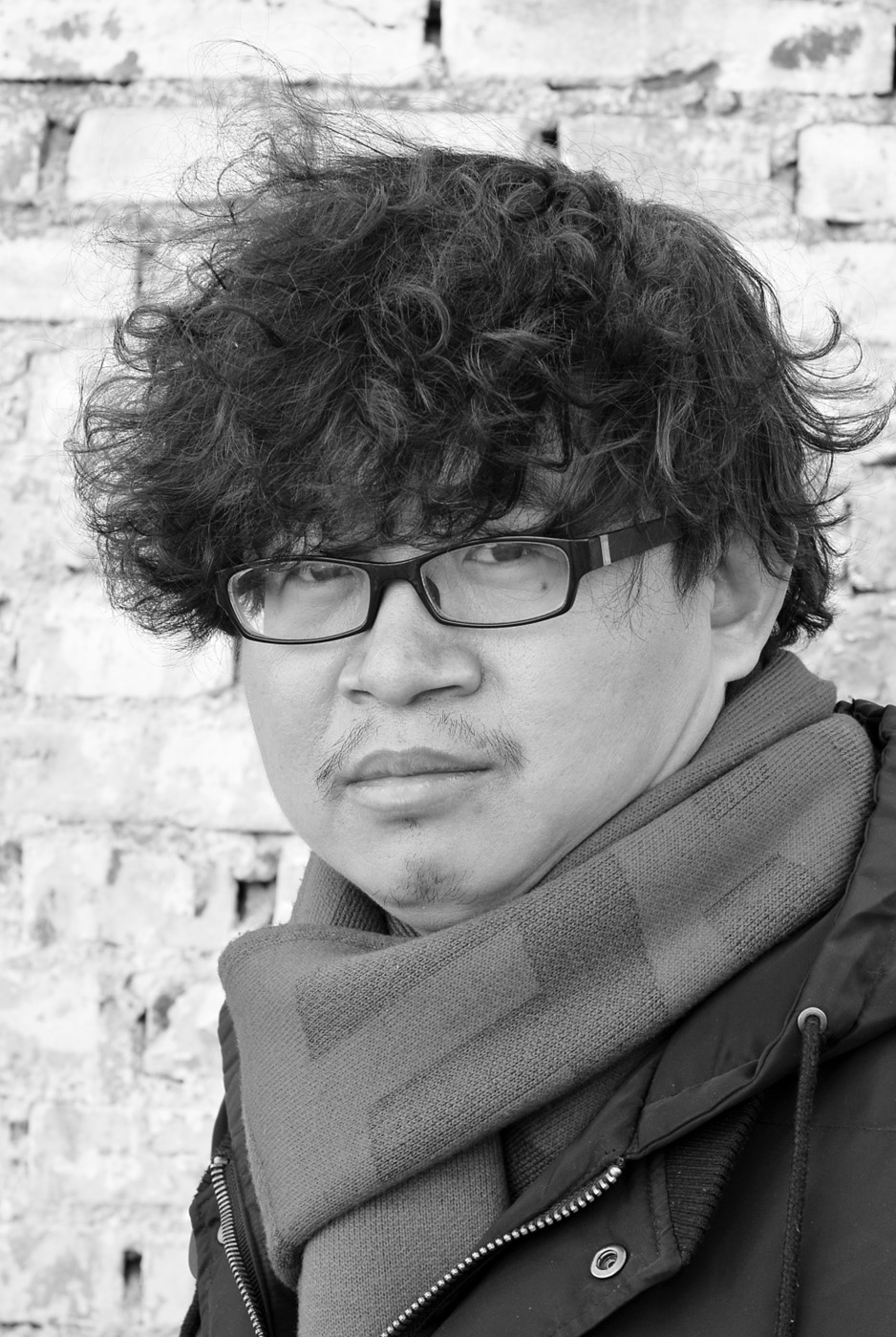
曹谁简介:
曹谁,诗人、小说家、剧作家、翻译家,北京师范大学文学硕士,中国民主同盟盟员。原名曹宏波,字亚欧,号通天塔主。曾参加鲁迅文学院第14届作家高研班、中国文联第9届编剧高研班、中国作协第10次作代会、第8次青创会。1983年生于山西榆社,2008年去职远游,在西藏、新疆周游数月而返青海,开始职业写作生涯,现居北京。2007年发起大诗主义运动,2017年倡导剧小说运动,2018年发起曹伊之争。著有诗集《亚欧大陆地史诗》《通天塔之歌》《帝国之花》等十部,长篇小说《巴别塔尖》《昆仑秘史》(三部曲)《雪豹王子》等十部,文集《可可西里动物王国》《西藏新疆游历记》等三部,翻译《理想国的歌声》《透明的时间》等三部,电影剧本《昆仑决》《子弹上膛》《功夫小鬼》、电视剧本《孔雀王》和舞台剧本《雪豹王子》等百余部集。作品发表于《人民文学》《诗刊》《作家》等文学杂志,入选上百部权威选本。有多部长篇小说改编为影视剧、广播剧、舞台剧等。有作品翻译为英、法、德、俄、日、韩、印地、意大利、西班牙、土耳其、阿拉伯等20余种文字,在国际诗坛有三十多位著名诗人写作评论,被印度杰出诗人拉蒂·萨克塞纳称为是“领导新世界的年轻一代”的代表诗人。曾获首届中国青年诗人奖、第5届青海青年文学奖之“文学之星”、第4届曹禺杯剧本奖、第8届意大利罗马当代国际诗歌艺术学院奖之阿波罗·狄奥尼索斯诗歌奖诗歌奖、第12届俄罗斯金骑士奖、第5届中国诗歌春晚十大新闻人物等50多项省级以上文艺奖。曾参加第30届麦德林国际诗歌节、第26届哈瓦那国际诗歌节、第14届印度Kritya国际诗歌节、第4届青海湖国际诗歌节等多个国际诗歌节。系中国作家协会会员,中国电影文学学会会员,世界诗歌运动成员,《大诗刊》主编,《汉诗三百首》执行主编,《世界诗歌》副主编,《诗歌周刊》副主编,世界诗歌网副总编,博鳌国际诗歌节常务副秘书长,丝绸之路国际联合会副主席,华语诗歌春晚副总导演。
From Darkness To Light By Cao Shui:The Flowers Of The Empire Is A Sign Of A Desire To Lead The New World
By Rati Saxena( India)
There is an Upanishadic hymn which says – lead us from darkness to light, lead us from ignorance to knowledge. This is what a poet does, when he creates words from a given vocabulary. In the Eastern philosophy, word power is revered as Creator.
We realize that wisely used words leads to a better world. When I was reading an interview of Cao Shui by Lucilla Trapazzo, I was not surprised to know that the poet accepted that in his childhood he was afraid of shadows. Fear towards shadow or darkness means aiming for better world.
Invariably most people are attracted to words drenched in sorrow and pain. That is why such poetry attracts easily.
To be able to write a poem which leads to universality and happiness is not easy. To achieve that, the poet has to be knowledgeable and open minded.
Reading Cao Shui, I am happy to see the universality in his expressions and emotions. Being a contemporary poet, Cao Shui’s vision is different from the poets from his land, and that connects him to other world.
The biggest attraction of the book “the Flower of Empire “written by Cao Shui is the resistance to sorrow, which is sometimes created by people. This world is a stage, and he wants to stand in the centre, and face both happiness and sorrow -
You are the most ordinary person,
yet no one will let you be.
They sing for you, dance for you
to aid your sorrow process.
Until you give up all hope,
(GREAT DANCE OF SORROW)
Time is like the wheel over Tian'anmen gate,
which is built and destroyed by many powers,
and ordinary man is keep turning this wheel in the hope of heaven
until he himself gets gray hair-
We spin in the shadow of the wheel.
We're inside, but also outside.
It's over before it starts.
We keep spinning and become dizzy,
until our hair turns grey,
until we turn to dust and smoke.
Cao is not rewriting history, but is taking symbols from different civilizations to show the universal truth, which ought to be taught by philosophers. All great civilizations are created with fear and power. But where are they? They were able to remain intact through stories carried forward by common people and love for humanity. He puts the question-
Iron lions guard the grave and it’s owner.
Aryan people’s horses rushed westward,
Qiang people's boats sailed east,
but the treasures in the tomb were sleeping quietly.
The cavalry of the Mongol Empire spread over Asia
at sunrise,
British Empire’s boats sailed from Europe at sunset,
but all the treasures in the tomb were safe.
Sadly history remembers only cruelty, is it not a way to give emphasis to darkness over light? Are we not giving more significance on killing rather than giving life? I quote his own words, which explains better –
Li Zicheng's troops break into Beijing city;
Emperor Chongzhen killed his two daughters with an axe,
and hanged himself on the top of Jingshan Mountain.
--------
Today, Yang Gailan, a countryside woman
in Agushan Village
has used Emperor Chongzhen's axe and
Princess Medea's poison
to kill the children again.
(EMPEROR CHONGZHEN AND PRINCESS MEDEA TAKE YANG GAILAN AND LEAVE FOR AN IDEAL WORLD)
Cao not only brings history in his poems , but also uses folk tales in such a beautiful way that it becomes relevant to contemporary world. He want to sing the songs for love, and that only can face cruelity.
how hard it is for us to fall in love!
We are running on the border between life and death.
We look up at the stars and say:
“Let the gale of hundreds of generations
of catastrophes blow away!”
We are born together and we will die together.
(SONG OF GALE)
Happiness is like a little flower , which cannot take a single step, but with his fragments travel to many places, how apt are these lines in this pandemic, -
I have seen a little flower,
which couldn’t move a little step.
……
Plum-red is a refined color.
Sweet taste is superfine.
This is the drink of theatre actors,
this is the drink to take when you visit your relatives.
It can lift our moods after we practice martial arts.
It can celebrate us after a victory in battle.
(FLOWER-JUG)
I want readers to read his poems carefully and I sum up my note with some of his lines which convey that all religions , all languages and all leaders give only one message , that is to read poetry. Poetry is word power, which heals, which is therapeutic.
the Greeks spoke of Zeus in Greek;
the Indians spoke of Brahma in Hindi;
the Jews spoke of Jehovah in Jewish;
the Egyptians spoke of Ra, the God of Sun, in Egyptian;
the Persians spoke of Marduk in Persian.
They argued endlessly.
We couldn’t understand their language,
but we knew what they were talking about.
We read a lyric of the Tower of Babel:
words against people from all over the world.
This is a very powerful message for the young generation who aspire to lead the new world.
Dr. Rati Saxena – Rati Saxena is a Poet, Translator, and Editor .she is a student of culture, history and ancient literature, and philosophy by passion. Thus her soul is wandering in these different directions. Being the student of Vedic studies in honours and Masters, having done PhD on subject related to Atharvaveda, she has worked more in restudy of ancient literature. In this direction, her work under Indira Gandhi Fellowship is – “The seed of mind - A fresh approach to Atharvaveda” study along many articles for journals. She has six collections of poetry in Hindi and four in English (Translated or rewritten). She has Translate fifteen books mostly from Malayalam to Hindi, and five poetry books (International poets) from English to Hindi. Being a natural Traveler, she has two travelogues in her credit. She has also written a Memoire- “Everything is past tense” about Ayyappa Paniker’s poetic journey and one book of criticism on Balamanyaama’s poetry. Her book on poetry therapy came out with Hawakal publications, - A fist which opens, a poetry therapy from distant past to present future. Her poetry books have been translated in to many internationals languages like Italian, Irish, Vietnamese, Spanish, Estonian, Serbian, English and Turkey languages by international poets. She has been invited to more than 30 poetry festivals. She has been in three residencies in Germany and China. Member of the journal’s editorial board Multilingual Journal of Literature and Opto-Art “WürZarT,”2. She is member of an international scientific board, experience in musical and literary fields (www.squilibri.it). Her poem was also part of space mission by Jaxa, Japan, along with 24 other poems. She is not big award catcher, still a few came to her automatically -Fellowship by Indira Gandhi National Centre for Arts in 2004-5,Sahitya Akademi Award for Translation 2000 ,State Bank of Travancore Award for poetry 2001, Naji Naaman’s Literary Prizes (International) for complete work 2016 , DJS Translation award for Chinese poetry (DJS is the acronym in Chinese for (Emily) Dickinson, the American woman poet.) 2018, and best poet of the year by Rajasthan Patrika Award biggest in the country for signal poem.
Bio of Cao Shui
Cao Shui(Chinese: 曹谁;pinyin: Cáo Shuí), also Shawn Cao (born in Jun 5, 1982), is a Chinese poet, novelist, screenwriter and translator. He is a representative figure of Chinese Contemporary Literature. He leads “the Greatpoeticism” movement. In his “Manifesto of Greatpoem”, he aims to integrate sacred and secular cultures, oriental and occidental cultures, ancient and modern cultures in Chinese literature. In 2008, he resigned from a newspaper and traveled around Tibet and Xinjiang, which is the center of Eurasia or the World in his view. His novels Secret of Heaven trilogy tells the whole developing history of human civilization. His most notable works includes Epic of Eurasia, the already mentioned trilogy and King Peacock (TV series). In his works, he extracts elements of various ancient human civilizations, from Babylon to the west to Judea, Egypt, Greece, to the east to Persia, India, China, and uses these elements to reconstruct a new Utopian human homeland, which always described as Eurasia, the Top of the Tower of Babel or Kunlun Mountains (Heaven Mountains). So far twenty books of Cao Shui have been published, including five poem collections, three essay collections, ten novels, three translations and one hundred episodes TV series and films. His works have been translated into English, Italian, Spanish, French, German, Danish, Polish, Russian, Hungarian, Croatian, Slovenian, Turkish, Arabic, Japanese, Korean, Hindi, Nepali, Vietnamese, Tibetan, Mongolian, etc. He has been invited to participate in the 30th Medellin International Poetry Festival, the 26th Havana International Poetry Festival, the 14th Kritya International Poetry Festival in India and the 4th Qinghai Lake International Poetry Festival. He is a member of China Writers Association, China Film Association and China Poetry Society. He is also chief editor of Great Poetry, deputy editor in chief of World Poetry, secretary general of Boao International Poetry Festival and vice president of the Silk Road International Poetry Festival. Currently he lives in Beijing, and works as a professional writer and screenwriter.
注:本文已获作者授权发布
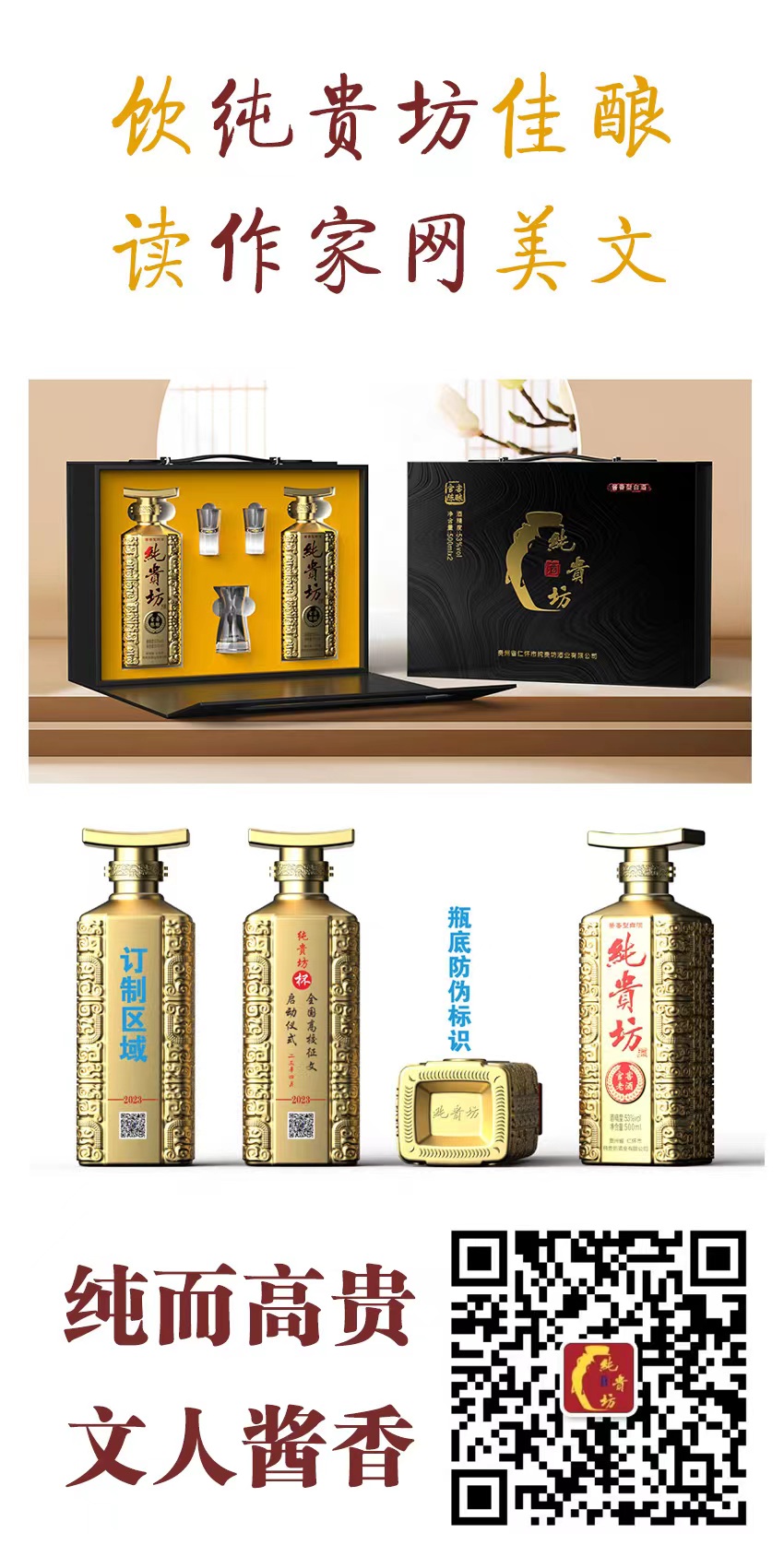


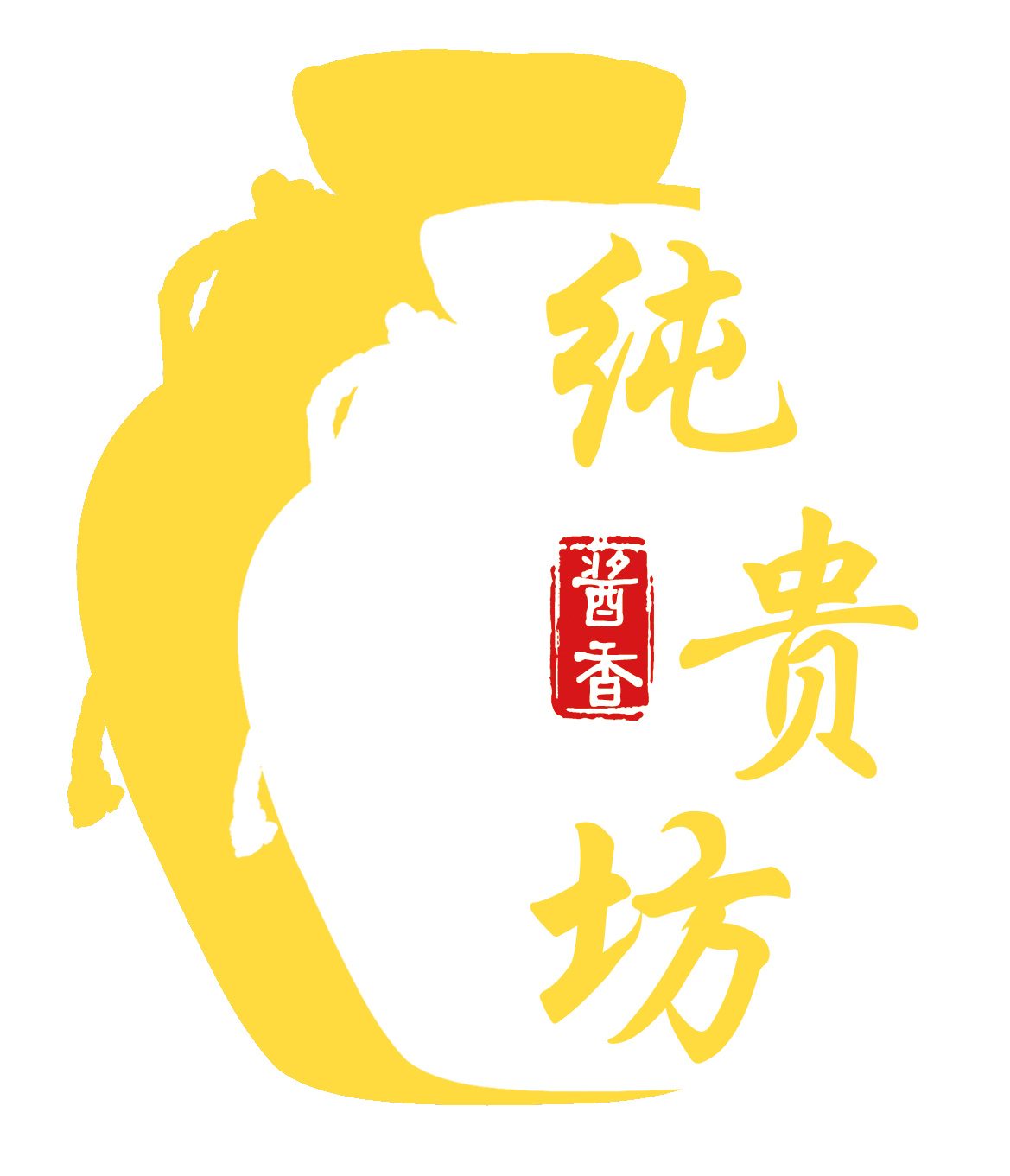 纯贵坊酒业
纯贵坊酒业
